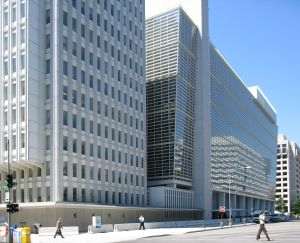• Starting in September, the derivatives markets will no longer be allowed to function without Central Counterparties with a minimum capitalization of 7.5 million Euros
• The passage to the status of emerging market could be affected by the survival of the derivatives market
• The CNVM wanted to know how the market sees the implementation of the central counterparty
The two domestic exchanges - the Bucharest Stock Exchange and Sibex - will cooperate for the implementation of a Central Counterparty (CCP), an institution which is required on a European level, without which Romania could be left without a derivatives market.
Essentially, the European Union is requiring the creation of a central counterparty with a minimum capital of 7.5 million Euros for the derivatives market, by September, according to Regulation 648 concerning derivatives, the central counterparties and the central trade registries (EMIR).
The issue of the "CCP" has been examined from every possible angle on Monday, in an extensive meeting, which was attended by the directors and the executives of the BSE and Sibex, of the Bucharest Clearing House (CCB) and of the Romanian Clearing House (CRC), the management of the Central Depository, as well as the commissioners and the executives of the Romanian National Securities Commission (CNVM).
The CNVM has asked questions to find out how the market would see the implementation of the central counterparty in Romania, and to remind that the exchanges need to hurry.
Before being joined by the representatives of the CNVM, the officials of the two exchanges have discussed the working alternatives.
The conclusion of the meeting was that a local central counterparty, with a capital of approximately 11 million Euros, would be a much better solution than resorting to a foreign institution, which would have to deal with adapting the infrastructure.
A joint BSE-Sibex team will be working on the project.
In the preliminary talks, the alternatives taken under consideration were the building of the central counterparty based on the structure of the Romanian Clearing House, in Sibiu, or based on the structure of the Bucharest Clearing House (CCB), in Bucharest, or the merger of the two into a merger of the two, which would eventually resort to foreign expertise.
For Sibex, a solution would be for the Sibex Depository and the Romanian Clearing House (CRC) to merge, as the two institutions have about 6 million Euros in their coffers, that is, almost half of the capital needed for a qualified Central Counterparty.
The BSE has money in its accounts as well, but the problem whether this would be the most effective use of its funds and how the shareholders would view these investments.
The initiative of the two exchanges to cooperate is praiseworthy, but what matters is whether it would lead to some concrete results, taking into account the not so old history of the two exchanges, as well as the fact that there are disagreements within the two exchanges themselves.
• The white flag and the shareholders' judgment
The statement by the president of the BSE Lucian Anghel of Monday's meeting could be a sign that "the cold war between the BSE and Sibex" has ended.
The CEO of Sibex, Dan Simionescu had stated precisely the same thing, in an interview he gave BURSA, last month.
However, beyond the statements, or what the EU may or may not ask of us, the shareholders will think pragmatically the actions of the two exchanges and the manner in which the money is being spent.
Among the main shareholders of the two exchanges we have the SIFs, which apparently support the Central Counterparty Project. But it should also be remembered that this year elections are scheduled to take place, and in full electoral campaign the SIFs will carefully think their moves.
• Will the switch to the emerging market status be affected?
Sources present on Monday's meetings have told us that a functional derivatives market is a requirement for switching to the status of an emerging market from that of a frontier market.
But the "FTSE Global Equity Index Series" of September 2012, which rates countries based on their development level, features the notion of "developed derivatives market", which is a criterion for developed markets, not for emerging ones.
Nevertheless, the lack of a continuity of the derivatives market would not be well seen abroad, according to several opinions in the market.
• The possibility of the involvement of the NBR in the CPP project was discussed as well
During Monday's meeting, the representatives of the stock exchanges have also talked about the possibility of the National Bank of Romania getting involved in the Central Counterparty project, which would provide more credibility.
It would seem however that a conclusion was reached that there would not be enough time for that and that the alternative of the BSE and Sibex starting the project on their own would be better for the moment.
The two exchanges have thought about extending the CCP to the spot market as well, two years after its creation and getting the NBR involved in the project at a later date.
What is certain is that the clock is ticking and if the BSE and Sibex do not find a solution quickly - together or separately - in September we will be left without a derivatives market, regardless of how small it may have been.
In 2012, the derivatives market of the BSE had only 20,423 contracts traded, compared to 54,337 in 2011.
Sibex saw 1,472,260 futures contracts traded in 2012, compared to 1,613,469 in 2011.

















































